November 19, 2014 •
Long Beach, California Council Votes to Roll Back Campaign Restrictions
City Council voted November 18 to remove portions of the city’s Campaign Reform Act. Ordinance 14-0926 allows candidates to deposit large contributions before obtaining donor information and to transfer contributions to other candidates. Both practices are currently allowed by the […]
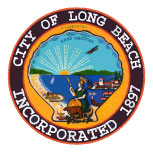 City Council voted November 18 to remove portions of the city’s Campaign Reform Act. Ordinance 14-0926 allows candidates to deposit large contributions before obtaining donor information and to transfer contributions to other candidates. Both practices are currently allowed by the state, but prohibited by city law.
City Council voted November 18 to remove portions of the city’s Campaign Reform Act. Ordinance 14-0926 allows candidates to deposit large contributions before obtaining donor information and to transfer contributions to other candidates. Both practices are currently allowed by the state, but prohibited by city law.
The ordinance would also adjust contribution limits on January 1 of odd numbered years, rounded to the nearest $100. Currently, limits are adjusted in even numbered years to the nearest $50.
The ordinance takes effect 31 days following approval by Mayor Robert Garcia.
November 19, 2014 •
Wednesday Government Relations News
Lobbying “Top Spenders on Capitol Hill Pay Billions, Receive Trillions” by Bill Allison and Sarah Harkins for Sunlight Foundation “Gift Ban Legislation to Get Second Chance as Wolf Pushes Own Ethics Reform” by Andrew Staub for Pennsylvania Independent Campaign Finance […]
 Lobbying
Lobbying
“Top Spenders on Capitol Hill Pay Billions, Receive Trillions” by Bill Allison and Sarah Harkins for Sunlight Foundation
“Gift Ban Legislation to Get Second Chance as Wolf Pushes Own Ethics Reform” by Andrew Staub for Pennsylvania Independent
Campaign Finance
“Pay-to-Play Restrictions on Government Contracting Under Assault” by Craig Holman for Huffington Post
“FINRA Proposes Pay-to-Play Rules” in ThinkAdvisor
“APOC, Marijuana Activist Charlo Greene Clash over Campaign Disclosure Questions” by Suzanna Caldwell for Anchorage Daily News
“Vincent Gray Rejects Plea Offer; Federal Prosecutors Moving Closer to Indictment” by Mike DeBonis for Washington Post
“Colleagues Defend Councilwoman Debi Rose against ‘Witch Hunt’” by Anna Sanders for Staten Island Advocate
Ethics
“Ethics Changes, Court Rules among First Bills Arkansas Lawmakers File for 2015 Session” by Andrew DeMillo (Associated Press) for The Daily Journal
“Florida Attorney General to Head Group That Financed Her Campaign” by Bill Cotterell for Reuters
“SC House Panel OKs ‘Sunshine’ Proposals” by Jamie Self for The State
Legislative Issues
“Senate Officials Ponder Definition of Journalist for Pressroom Access” by Tim Lockette for Anniston Star
November 18, 2014 •
Fifth Circuit Upholds Mississippi Campaign Finance Law
The United States Court of Appeals for the Fifth Circuit upheld a Mississippi campaign finance disclosure law, reversing the district court’s ruling. The case, Justice v. Hosemann, focused on a law requiring persons or groups who spend more than $200 […]
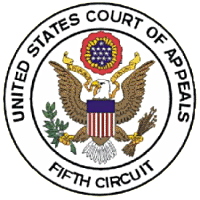 The United States Court of Appeals for the Fifth Circuit upheld a Mississippi campaign finance disclosure law, reversing the district court’s ruling. The case, Justice v. Hosemann, focused on a law requiring persons or groups who spend more than $200 in support or opposition to a ballot initiative to register and report contributions and expenditures.
The United States Court of Appeals for the Fifth Circuit upheld a Mississippi campaign finance disclosure law, reversing the district court’s ruling. The case, Justice v. Hosemann, focused on a law requiring persons or groups who spend more than $200 in support or opposition to a ballot initiative to register and report contributions and expenditures.
The district court ruled this unconstitutional, however, the Fifth Circuit, applying an “exacting scrutiny” standard, found the disclosure requirements were substantially related to the state’s interest of keeping the voters informed.
Plaintiffs in the case have until November 28 to seek a rehearing before the full Fifth Circuit or until February 12 to seek review by the U.S. Supreme Court.
November 18, 2014 •
No Changes Made to Campaign Contribution Limits in Akron
On Monday, the Akron City Council rules committee voted to wait to make changes to the city’s campaign contribution limits. Council President Gary Moneypenny’s proposal would have increased the limits for mayoral and council candidates by $100. Former Councilman Warner […]
 On Monday, the Akron City Council rules committee voted to wait to make changes to the city’s campaign contribution limits.
On Monday, the Akron City Council rules committee voted to wait to make changes to the city’s campaign contribution limits.
Council President Gary Moneypenny’s proposal would have increased the limits for mayoral and council candidates by $100.
Former Councilman Warner Mendenhall, who promoted a petition for the original contribution limits in 1998, protested the proposed changes during the afternoon committee meeting.
November 18, 2014 •
Virginia Ethics Panel Readies Recommendations for Governor
The ethics panel recently assembled by Gov. Terry McAuliffe has assembled its recommendations for reforming laws covering gifts and conflicts of interest. The panel recommended a $250 gift limit to public officials as well as creating a new ethics review […]
 The ethics panel recently assembled by Gov. Terry McAuliffe has assembled its recommendations for reforming laws covering gifts and conflicts of interest. The panel recommended a $250 gift limit to public officials as well as creating a new ethics review commission with the power to investigate complaints and hand out penalties for violations.
The ethics panel recently assembled by Gov. Terry McAuliffe has assembled its recommendations for reforming laws covering gifts and conflicts of interest. The panel recommended a $250 gift limit to public officials as well as creating a new ethics review commission with the power to investigate complaints and hand out penalties for violations.
Other recommendations include requiring electronic filing of disclosure forms and prohibiting board and commission members from voting on matters affecting their interests.
The panel will formally submit its recommendations to the governor on December 1.
November 18, 2014 •
Arkansas Lawmakers Prefile Ethics Bill to Clarify Recent Changes
Lawmakers have prefiled a bill to clarify new ethics laws contained in a constitutional amendment passed by voters on November 4, 2014. The amendment prohibits lobbyist gifts and corporate contributions, but the Ethics Commission needs further legislative authority to enforce […]
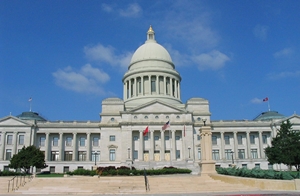 Lawmakers have prefiled a bill to clarify new ethics laws contained in a constitutional amendment passed by voters on November 4, 2014.
Lawmakers have prefiled a bill to clarify new ethics laws contained in a constitutional amendment passed by voters on November 4, 2014.
The amendment prohibits lobbyist gifts and corporate contributions, but the Ethics Commission needs further legislative authority to enforce the constitutional changes.
Democratic Rep. Warwick Sabin and Republican Sen. Jon Woods filed House Bill 1002 as a shell bill, without any specific proposals, to publicize the issue ahead of the session start date on January 12, 2015.
Photo of the Arkansas State Capitol by jglazer75 on Wikimedia Commons.
November 18, 2014 •
Tuesday Lobbying and Campaign Finance News Update
Lobbying “Lobbyist Group to Elect New Leaders” by Megan Wilson for The Hill “Which Lobbyists Interact with Your Lawmakers?” by Justin Hinkley for Lansing State Journal “Patrick Lynch Lobbied Rhode Island Attorney General’s Office for Years but Never Registered” by […]
 Lobbying
Lobbying
“Lobbyist Group to Elect New Leaders” by Megan Wilson for The Hill
“Which Lobbyists Interact with Your Lawmakers?” by Justin Hinkley for Lansing State Journal
“Patrick Lynch Lobbied Rhode Island Attorney General’s Office for Years but Never Registered” by Michelle Smith (Associated Press) for The Daily Journal
“Lobbyist – a Dirty Word or How Things Get Done?” by Cathy McKitrick for The Standard-Examiner
Campaign Finance
“How the GOP Used Twitter to Stretch Election Laws” by Chris Moody for CNN
“Federal Panel Upholds Mississippi Campaign Finance Law” by The Associated Press for Biloxi Sun Herald
“National Education Group Agrees to Pay $10,000 Fine for Oklahoma Election Ethics Violations” by Nolan Clay for The Oklahoman
“Lawmakers Punt on Campaign Disclosure Bill” by Trvor Brown for Wyoming Tribune-Eagle
Ethics
“Former SC State Senator Indicted on Public Corruption Charges” by Jamie Self for The State
“McAuliffe’s Ethics Panel Recommends Changes on Gift, Disclosure, Conflict Rules” by Jim Nolan for Richmond Times-Dispatch
Legislative Issues
“How McConnell World Works” by Anna Palmer for Politico
November 17, 2014 •
FINRA Proposed Pay-to-Play Rules
The Financial Industry Regulatory Authority (FINRA), a private, self-regulatory organization for U.S. securities firms, is proposing pay-to-play rules. According to FINRA Regulatory Notice 14-50, posted on November 14, it is requesting comment on the proposed rules, which would regulate the […]
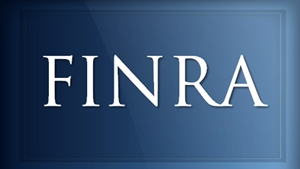 The Financial Industry Regulatory Authority (FINRA), a private, self-regulatory organization for U.S. securities firms, is proposing pay-to-play rules.
The Financial Industry Regulatory Authority (FINRA), a private, self-regulatory organization for U.S. securities firms, is proposing pay-to-play rules.
According to FINRA Regulatory Notice 14-50, posted on November 14, it is requesting comment on the proposed rules, which would regulate the activities of member firms engaging “in distribution or solicitation activities for compensation with government entities on behalf of investment advisers that provide or are seeking to provide investment advisory services to such government entities within two years after a contribution to an official of the government entity is made by the member firm or a covered associate.” The three specific rules for which FINRA is seeking comment are Rule 2271, Rule 2390, and Rule 4580.
November 17, 2014 •
Wyoming Interim Committee Tables Campaign Finance Bill
A legislative committee has voted to table a draft bill to expand disclosure requirements for political independent expenditure groups. The bill would require a group to report an independent expenditure if it “directly or indirectly” advocated for the election or […]
 A legislative committee has voted to table a draft bill to expand disclosure requirements for political independent expenditure groups. The bill would require a group to report an independent expenditure if it “directly or indirectly” advocated for the election or defeat of a candidate.
A legislative committee has voted to table a draft bill to expand disclosure requirements for political independent expenditure groups. The bill would require a group to report an independent expenditure if it “directly or indirectly” advocated for the election or defeat of a candidate.
Current law requires reporting only if the expenditure “expressly” advocates for the election or defeat of a candidate. A majority of the Joint Corporations, Elections, and Political Subdivisions Interim Committee decided the language was overly broad.
November 17, 2014 •
NYC Campaign Finance Board Proposes Rules on Contributions by Text Message
The New York City Campaign Finance Board has proposed rules regulating political contributions by text message. The rules set forth the eligibility requirements for public funds matching of text message contributions, the process of record keeping requirements for such contributions, […]
 The New York City Campaign Finance Board has proposed rules regulating political contributions by text message. The rules set forth the eligibility requirements for public funds matching of text message contributions, the process of record keeping requirements for such contributions, and requirements of contributors to certify their identities when making text message contributions.
The New York City Campaign Finance Board has proposed rules regulating political contributions by text message. The rules set forth the eligibility requirements for public funds matching of text message contributions, the process of record keeping requirements for such contributions, and requirements of contributors to certify their identities when making text message contributions.
The rules are open for public comment until November 20, 2014. A public hearing is scheduled for Monday, November 24, 2014 at 10:00 a.m.
November 17, 2014 •
American Samoa Delegate Election Results Confirmed
On November 13, the official election results for American Samoa confirmed Republican Aumua Amata won the congressional race over the incumbent Democrat, Congressman Eni Hunkin Faleomavaega. According to SamoaNews.com, of the 10,246 votes cast, Amata received 4,306 to Faleomavaega’s 3,157 […]
 On November 13, the official election results for American Samoa confirmed Republican Aumua Amata won the congressional race over the incumbent Democrat, Congressman Eni Hunkin Faleomavaega. According to SamoaNews.com, of the 10,246 votes cast, Amata received 4,306 to Faleomavaega’s 3,157 votes. Faleomavaega has served 13 terms as the territory’s delegate to the U.S. Congress.
On November 13, the official election results for American Samoa confirmed Republican Aumua Amata won the congressional race over the incumbent Democrat, Congressman Eni Hunkin Faleomavaega. According to SamoaNews.com, of the 10,246 votes cast, Amata received 4,306 to Faleomavaega’s 3,157 votes. Faleomavaega has served 13 terms as the territory’s delegate to the U.S. Congress.
Amata, who is the first female delegate from American Samoa, begins her term in the nonvoting position when the new Congress convenes on January 3, 2015.
November 17, 2014 •
Pennsylvania Governor-Elect Wolf Bans Gifts to Transition Team
Gov.-elect Tom Wolf, fresh off of a victorious first campaign for public office, is already taking steps to ensure the ethical conduct of his administration. Wolf is requiring members of his transition team to sign a code of conduct including […]
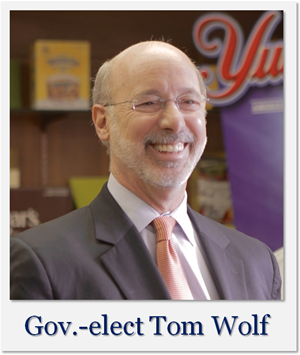 Gov.-elect Tom Wolf, fresh off of a victorious first campaign for public office, is already taking steps to ensure the ethical conduct of his administration.
Gov.-elect Tom Wolf, fresh off of a victorious first campaign for public office, is already taking steps to ensure the ethical conduct of his administration.
Wolf is requiring members of his transition team to sign a code of conduct including a ban on accepting gifts, one he plans to extend to the entire executive branch upon taking office.
The pledge also includes a requirement to disclose current and future conflicts of interest and a promise to not use their position for personal gain.
Photo of Gov.-elect Tom Wolf by Bruestle2 on Wikimedia Commons.
November 17, 2014 •
Akron City Council to Consider Raising Campaign Contribution Limits
The Akron City Council is considering legislation to increase campaign finance limits for mayoral and council candidates. Limits for mayor and at-large council candidates would increase to $750 and the limit for ward council candidates would increase to $500. The […]
 The Akron City Council is considering legislation to increase campaign finance limits for mayoral and council candidates. Limits for mayor and at-large council candidates would increase to $750 and the limit for ward council candidates would increase to $500.
The Akron City Council is considering legislation to increase campaign finance limits for mayoral and council candidates. Limits for mayor and at-large council candidates would increase to $750 and the limit for ward council candidates would increase to $500.
The council is waiting to take action on the legislation until after public hearings have been held. Hearings will take place at the Rules Committee meeting and at the regular council meeting later today.
The 10 ward council seats, the three at-large council seats, and the mayoral seat will all be on the 2015 election ballot.
November 17, 2014 •
West Virginia Ethics Commission Selects Executive Director
The state Ethics Commission unanimously approved Rebecca Stepto as its next executive director. The decision comes after a six-week search involving 15 candidates. Stepto, the current interim executive director, is the fifth person to hold the position.
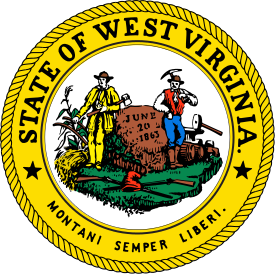 The state Ethics Commission unanimously approved Rebecca Stepto as its next executive director.
The state Ethics Commission unanimously approved Rebecca Stepto as its next executive director.
The decision comes after a six-week search involving 15 candidates.
Stepto, the current interim executive director, is the fifth person to hold the position.
State and Federal Communications, Inc. provides research and consulting services for government relations professionals on lobbying laws, procurement lobbying laws, political contribution laws in the United States and Canada. Learn more by visiting stateandfed.com.

